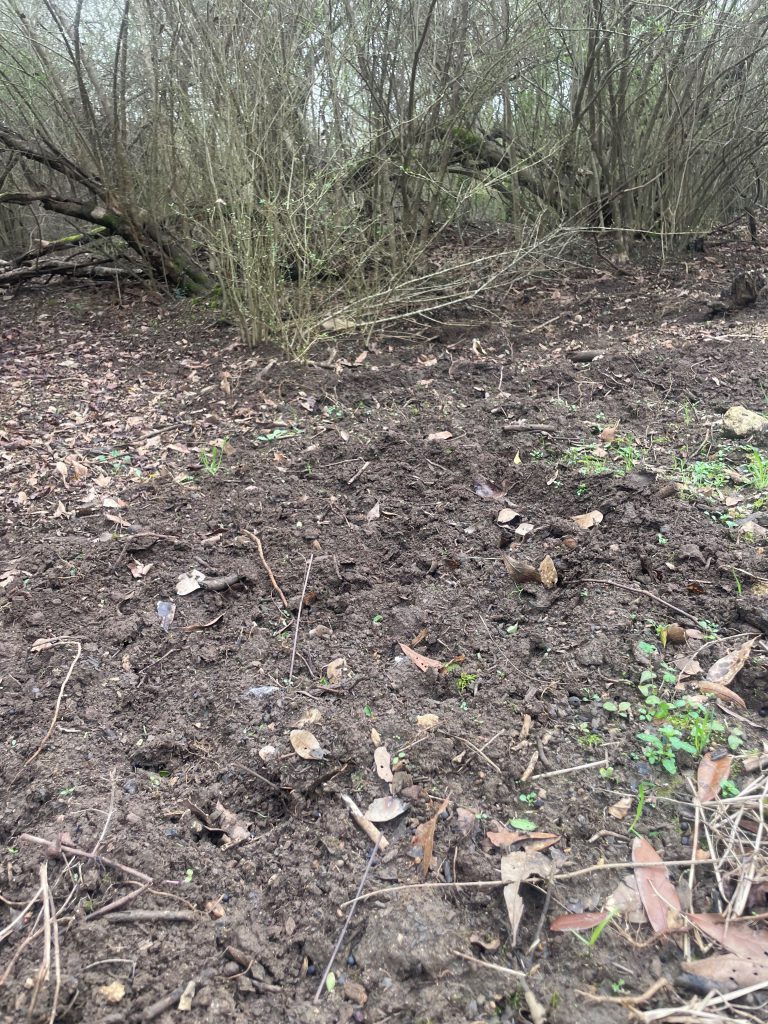Wild hogs, also known as feral pigs, are a common group known throughout Florida, including Escambia County. Brought in by early settlers, these beasts have become an invasive species that cause serious damage to whatever environment they enter. In Escambia County they are found in various habitats which include forests, swamps, and agricultural areas.
These creatures are omnivorous and feed on essentially anything they can find. They uproot and feed on plants, roots, and insects, as well as prey on nests, eggs, and the young of ground nesting birds, small mammals, and reptiles. This, in turn, damages the land and continues to create competition for native wildlife.

Wild hog populations can rise quickly with sows able to produce multiple litters of piglets in a year.
To seek control of the wild hog population, hunting is allowed in Escambia County with a valid license. However, this alone is not enough to manage the ever-growing population. Therefore, other control measures such as trapping may be necessary.
Wild hogs are known to be carriers of many diseases which can be transmitted to livestock, other animals, and even humans. It is important that anyone who attempts to hunt or trap wild hogs take every precaution.
As they are a significant issue that can cause economic and ecological damage, it is important to take action to manage their populations, and to minimize the impact they make on the local environment and agriculture.

Credit: Madelyn Grant
Here are some helpful links to learn more about Feral Pigs:
- USDA, History of Feral swine in the Americas- https://www.aphis.usda.gov/aphis/ourfocus/wildlifedamage/operational-activities/feral-swine/sa-fs-history#:~:text=They%20were%20first%20brought%20to,populations%20within%20the%20United%20States.
- UF/IFAS, Choosing the Right Tools is key to successful Feral hog Management- https://nwdistrict.ifas.ufl.edu/nat/2017/02/04/choosing-the-right-tools-is-key-to-successful-feral-hog-management/
- Turkeys in the Sunshine State - March 17, 2023
- NISAW: Wild Hogs, an invasive species to Escambia County - February 21, 2023
